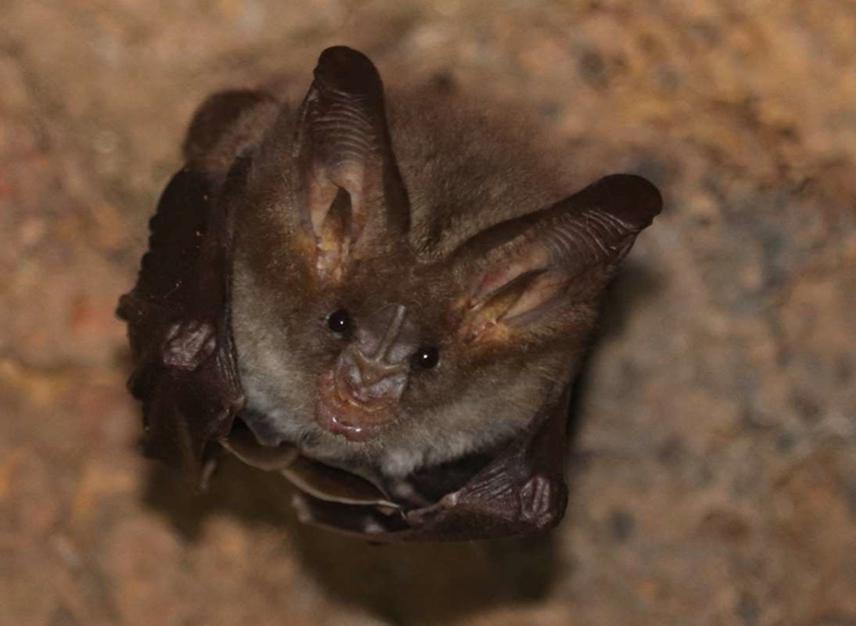Rahul Prabhukhanolkar
Bats are crucial component of India’s biodiversity and play key ecosystem roles as seed dispersers, pollinators and pest controllers. Tillari bioregion in Northern Western Ghats (Biodiversity Hotspot) is an established but severely threatened wildlife corridor due to habitat destruction and drastic land-use changes. Understanding effects of landscape-level changes on the bat diversity assemblage and developing an acoustic library will provide the basis for future monitoring and guidelines for conservation management. Capacity building and outreach are crucial to sensitize the local communities in a country which still identifies most fruit bats as vermin and provides no protection for insectivorous species.

Lesser false vampire bat with pup (Megaderma spasma)
Bats are vital component of India’s biodiversity. Despite the occurrence of 128 species, bats are, in general, lesser studied than other mammals in India. Information for many species is based only on museum or literature references, with few recent population or distributional studies. Assessment of bat diversity and development of call libraries is the primary research recommendation for nearly all regions in India. Also, their role in the local ecology and as ecosystem service providers is poorly understood, resulting in a Vermin status for most species as per the Indian law. Misconceptions and lack of awareness has resulted in negative perceptions about all bats in general and conservation action is hampered.
The Tillari Bioregion of the northern Western Ghats is a human-dominated landscape and comprises of tropical moist deciduous and semi-evergreen forest along with large patches of monoculture plantations.
This proposed study intends to assess the effects of land-use changes on the bat diversity in this tropical region. This will enhance the overall ecological value of the bioregion so as to get much required conservation attention. The project will provide a platform for research, capacity building and public outreach programme in a country where protection to bats and conservation is given very low priority.
This pioneering project on bat ecology in the region will create a detailed Bat Diversity-Distribution database (species list with regional threat status), examine habitat preferences and the effect of large-scale monoculture plantations on the local bat assemblage. Local-level studies in biodiversity hotspots help create an acoustic call database for the region. The results of the study will help identify, monitor and conserve high bat-diversity areas.
Understanding of habitat preferences and effects of monoculture plantation will provide inputs for developing regional conservation and management plan in the recent future. Results of the study will help convince local plantation owners to allow components within monocultures to safeguard bat diversity.
Organizing targeted public outreach events with an objective of mass awareness, sensitizing media personal, capacity building of local organizations, wildlife enthusiasts, and members of state forest department is a key part of the project. We envision that our outreach initiatives will generate a positive attitude towards bats and try to address the mysteries and myths linked to these unique mammals, in times when global pandemics are endangering their reputation and conservation.